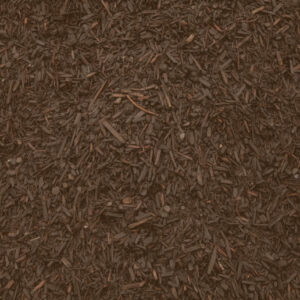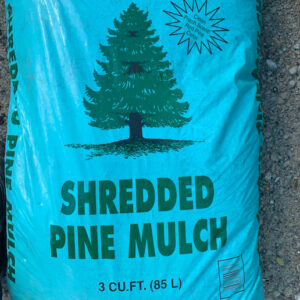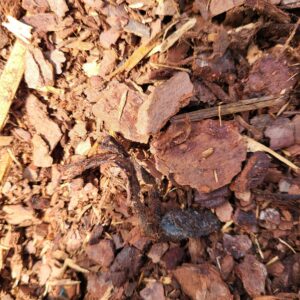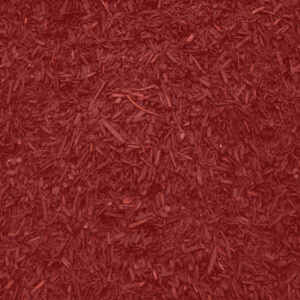
Mulch Delivery in Suburban Maryland & Northwest D.C.
Free Mulch Delivery!
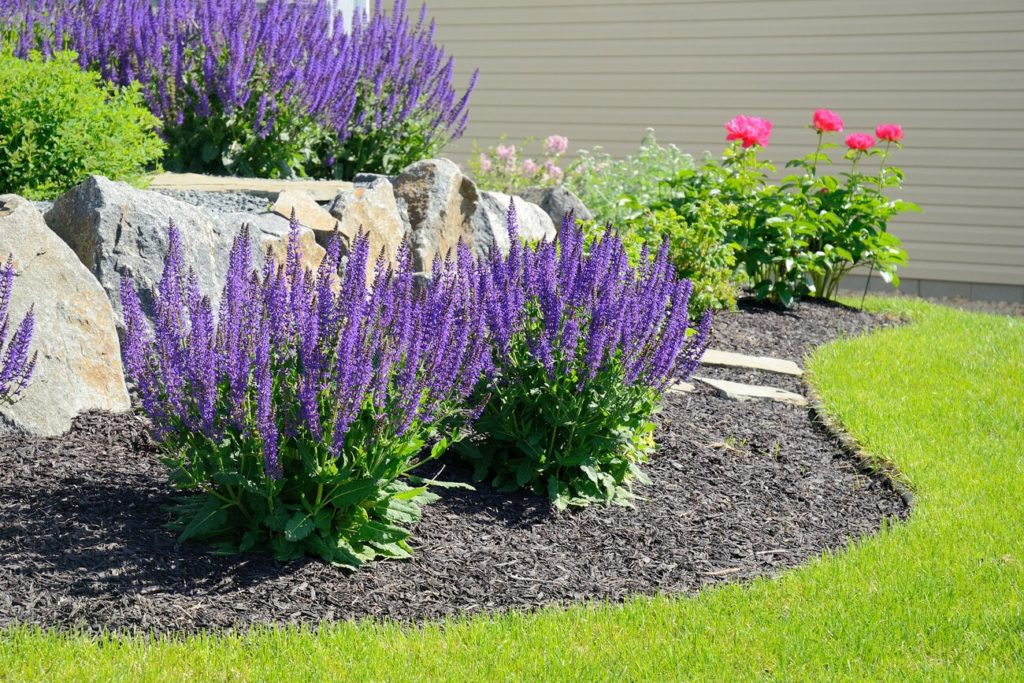
Mulch is Essential
Mulch is a fundamental part of home landscaping. Generally, when we think of healthy and thriving landscaping, we think of shrubbery, trees, and flowers. Perhaps you may think of stones or a patio. However, most people will not think of mulch as a fundamental and essential part of landscaping. The reality is, mulch offers both aesthetic and functional value to your landscaping, and it is important that you properly mulch your landscaping.
Mulch can be both organic and inorganic, and there are a few different types of mulch. Depending on your preferences and the intended use, we can work with you to decide what type of mulch is best for you. Traditional mulch is typically made of wood chips or bark shreddings, and there are many benefits to ensuring proper mulching for your home. In general, you will want to add a 3” thick layer of mulch to your landscaping.
Mulch Suppresses Weeds
Weeds are the enemy of all gardeners, as they grow uncontrollably and spread really easily. There are a lot of artificial and chemical weed killers out there, but they are all reactive products. That means that they kill weeds once they’ve started growing, but they do not do a great job of preventing the weeds from growing in the first place. At the end of the day, weeds are just plants, which means that they need sunlight to grow.
That’s where mulch comes in! By layering mulch on top of the soil, you are preventing sunlight from reaching the weeds. If the weeds do not have adequate sunlight to grow, they will not be able to grow very much. If you have fewer weeds in your yard, then the available nutrients can go toward the plants that you want to grow.
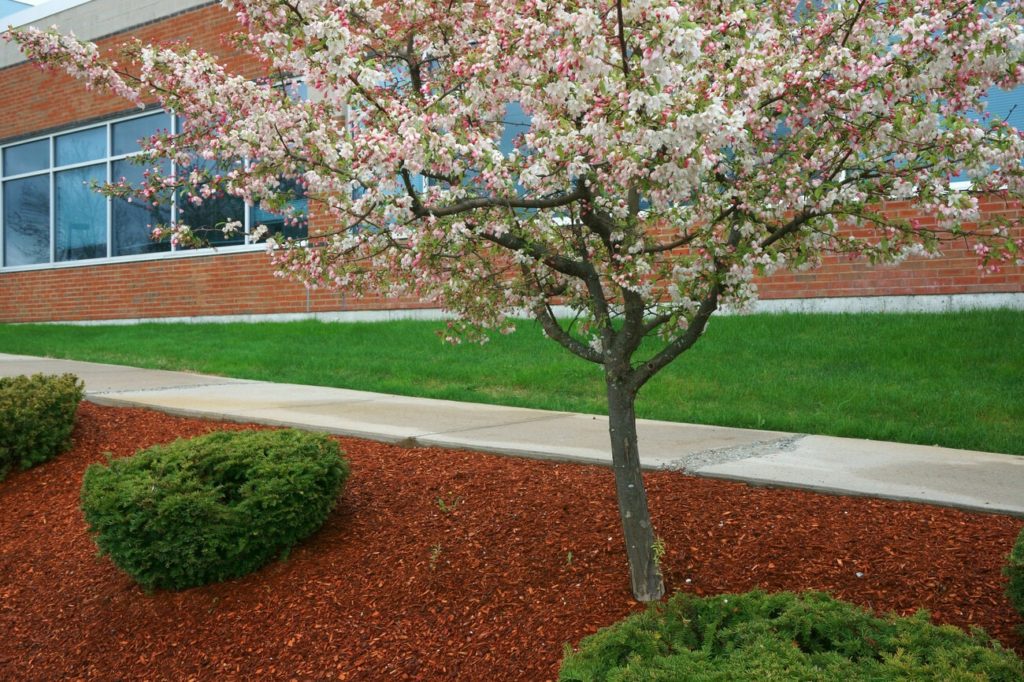
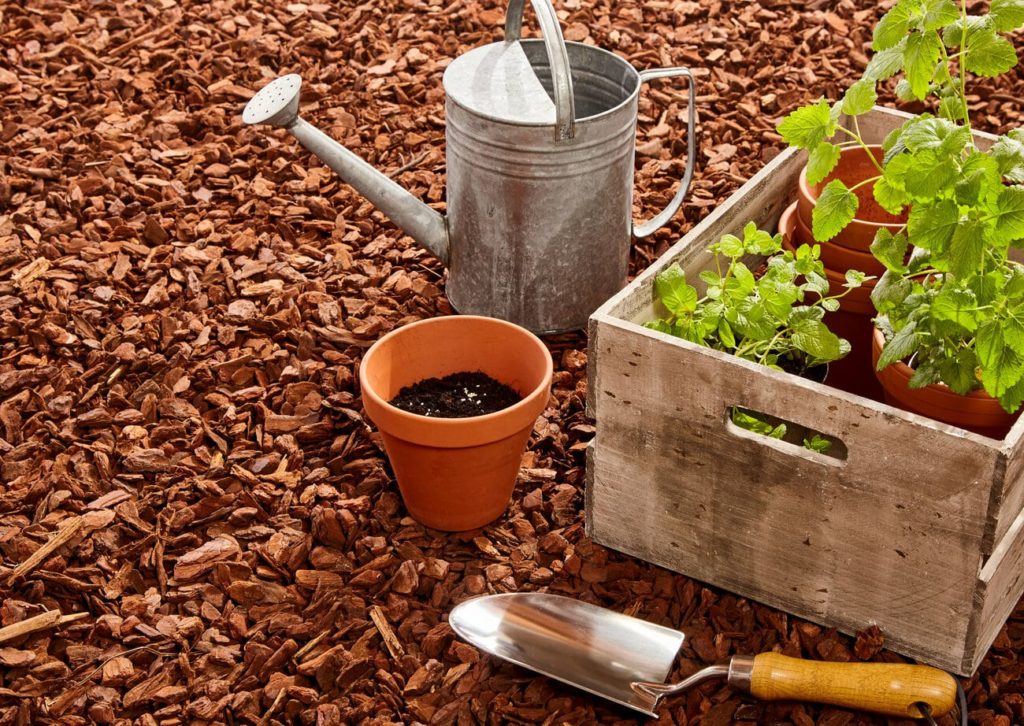
Mulch Retains Moisture
Mulch can also help with retaining moisture in the soil by preventing water from being evaporated in hot months. When soil is watered, all of the water is not immediately absorbed by the roots of the plants, so there is a chance that the water can evaporate. The mulch acts as a layer between the soil and the sun. Just be careful here – too thick of a layer of mulch will prevent the adequate amount of sunlight from hitting the roots of plants.
If the primary reason you are applying mulch is to retain moisture in the soil, the best time to mulch your yard is in the late spring or early summer, when the temperature of the soil is starting to rise but the soil isn’t being dried out by the sun yet.
Mulch Insulates Soil
Mulch is especially important to insulate the soil from fluctuations in temperature and from extreme temperatures. If you live in a climate where there are large fluctuations in temperature during the day, such as the mid-Atlantic region, where the weather can go from the 30s to the 60s in the same day, your soil needs something to protect the roots and seeds from fearing the damage these temperature fluctuations bring.
Mulch is also important for ensuring that plants grow when they are supposed to, and not earlier. For example, as we transition from cold winter months to warmer spring months, flowers may think that it is time to sprout, but the weather is going to get cold again, which will cause the flowers to die. To prevent this freeze-thaw damage, it is best to insulate your soil with mulch in the late fall or winter, as the mulch will prevent the flowers from growing too early.
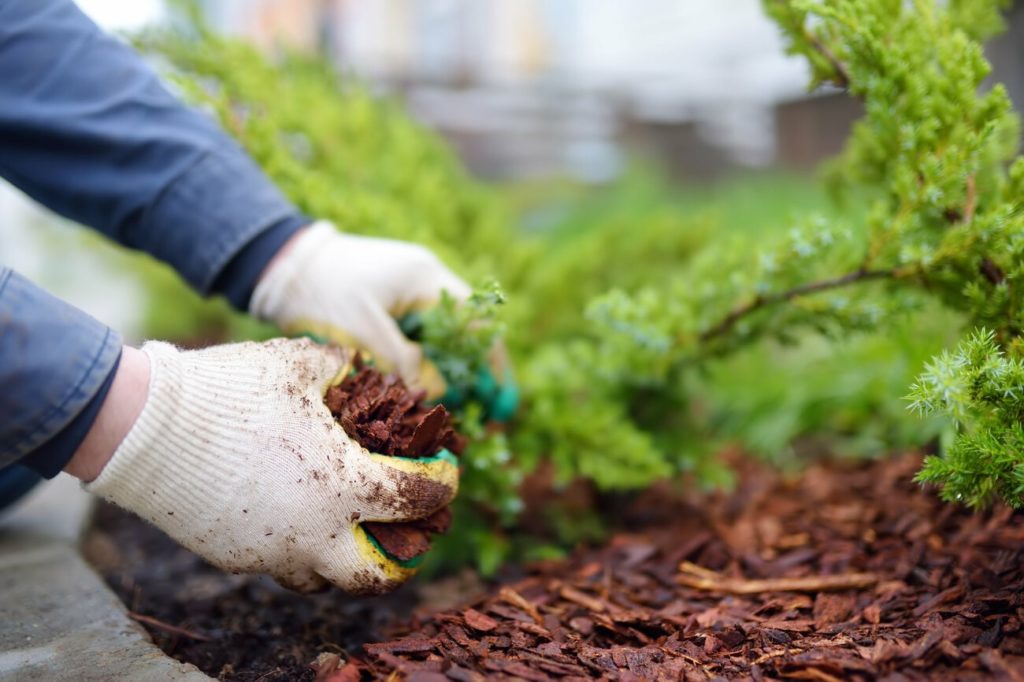
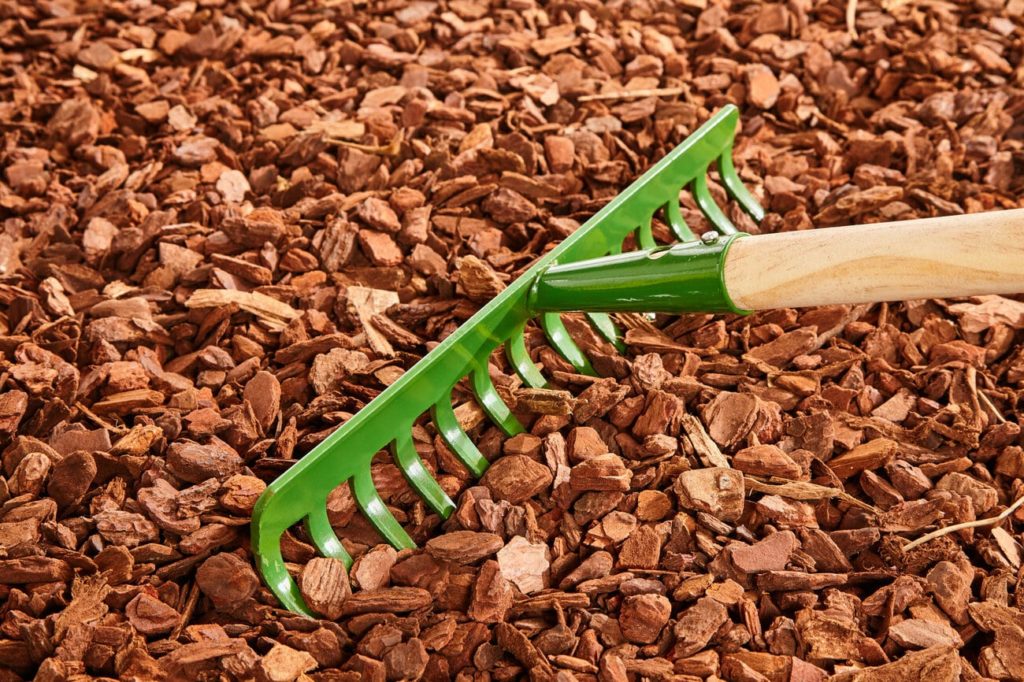
Mulch Reduces Soil Compaction
Soil compaction is when there is less air within soil because of some stress applied to the top of the soil. Soil is very delicate, and it needs an adequate amount of air in order to allow for proper plant growth. When soil is compacted, it impedes plant and root growth, which overall reduces plant yield. When you add a layer of mulch on top of the soil, you are essentially adding a cushion to prevent soil compaction. The mulch will be able to take the bulk of any physical stress that soil is facing, including people walking or heavy amounts of snow.
Mulch Enriches Soil
Due to the organic nature of mulch, there are a lot of nutrients in mulch that are beneficial for soil and plants. As the mulch decomposes over time, the nutrients from the mulch will transfer to the soil, which creates a much healthier environment for your plants and your soil. There are many different types of mulch that provide different types of nutrients, but we can help you decide which type of soil is best for this purpose.
Furthermore, adding mulch invites more earthworms to your landscaping, which is a major bonus for your plant health! Earthworms like the environment that mulch creates, and earthworms are important for maintaining the delicate ecosystem.
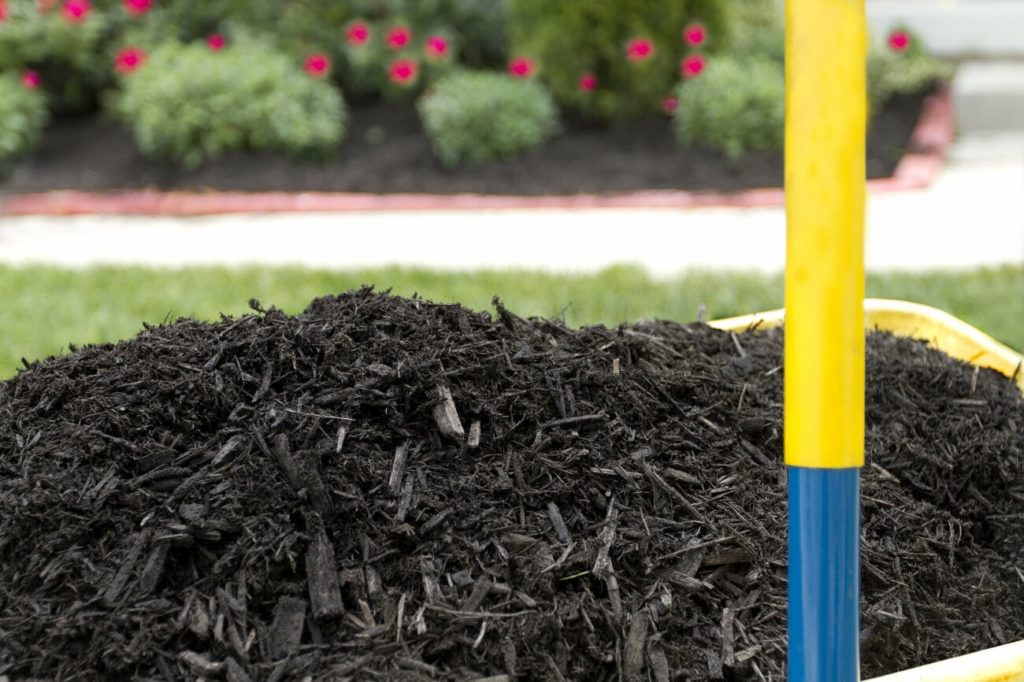
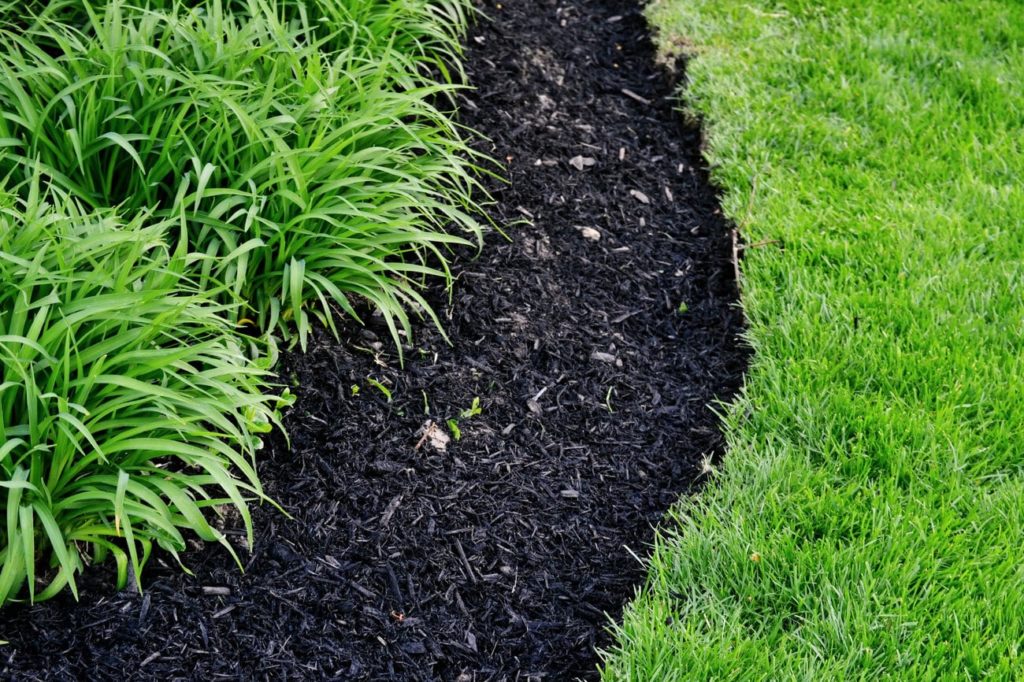
Mulch Increases Soil Fertility
An extension of all of these benefits of mulching your yard is that you can increase your soil fertility. By suppressing weeds, insulating soil, reducing soil compaction, and enriching soil, there is an overall increase in soil health, which leads to an increase in soil fertility. Increasing soil fertility means that your plants will thrive better in your landscaping!
Mulch Prevents Erosion
Soil erosion occurs when there is runoff or movement that causes relatively large amounts of soil to drift away. This is especially common in areas where the soil is right next to running water, or if the soil is sitting on sloped land, such as a hill. When layers of soil are stripped away, the roots of plants are exposed, which is dangerous for plants.
We want the soil to stay and protect the plants and little insects and critters. That’s where mulch comes in! Similar to what we saw with mulch reducing soil compaction, mulch can protect the soil from erosion. For example, if you have a soil bed near running water, it makes sense that soil may be stripped away by the water. By adding this layer of mulch, the mulch will be the new layer that the water is stripping away, thereby protecting your plants.
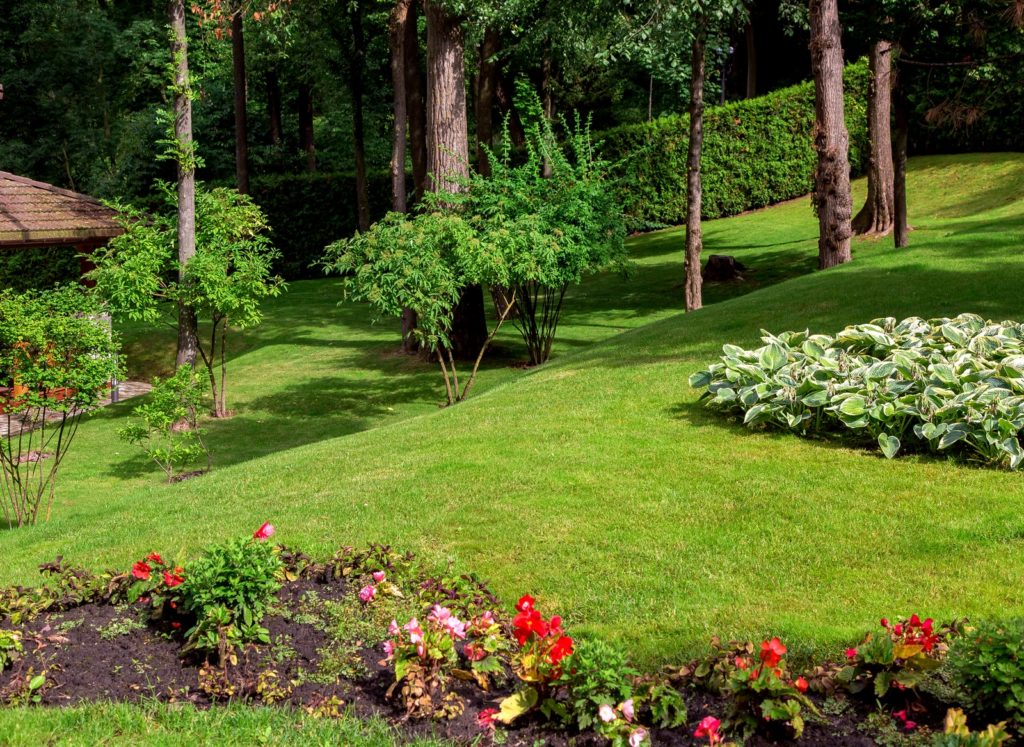
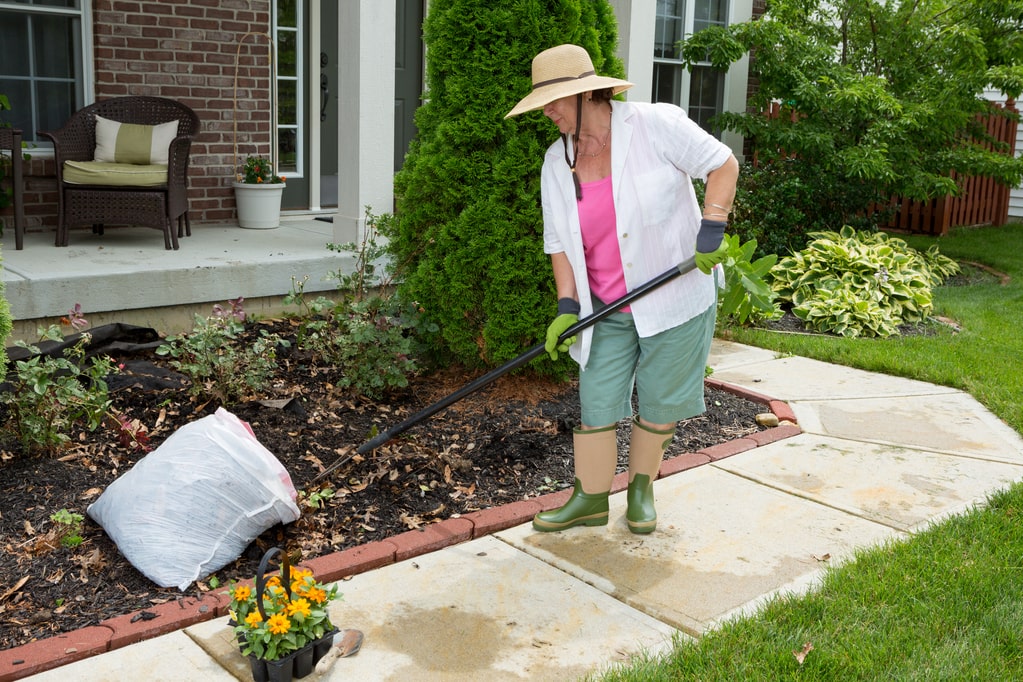
Mulch Enhances Your Curb Appeal
Soil can also add an element of beauty to your yard. Mulch does not have to be boring and brown – you can get mulch in a variety of different colors and styles. You can use mulch to elevate the look of your landscaping and add a dimension that you didn’t have before. Mulch can also add a bit of uniformity to your landscaping, so it looks more cohesive.
Why Buy Mulch from Hawkins Landscape Supply?
Even though there are a lot of benefits to integrating mulch into your landscaping, it may seem daunting to lug mulch back from the landscapers. The good news is that you can still enjoy all of the benefits of mulching without you having to head to the store.
With Hawkins Landscape Supply, you do not need to rent your own truck to bring a bunch of bags back from the store. Once you order the mulch, you can rest assured knowing that the mulch will just be dropped to your driveway. That convenience allows you to order as much mulch as needed, without feeling like you have to skimp on what your landscaping and your garden really need.
Order your mulch from us today!


